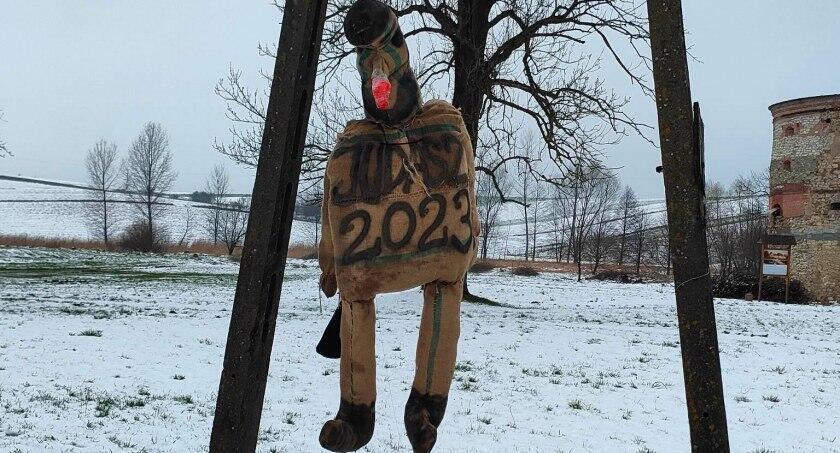Getting your Trinity Audio player ready...
In a harrowing antisemitic display in the rural town of Pruchnik is southeastern Poland, residents hung and burned a doll marked with Jewish stereotypes and a sign that says "Judas 2023".
A similar event happened back in 2019. The town's residents conducted a field trial for a doll named Yehuda Ishkir, which had the inscription JUDAS 2019. This ceremony, dating back to the Middle Ages, involved the residents holding a field trial for Yehuda a Keriot and subsequently sentencing him to death.
The execution took place via hanging, and the "corpse" was then paraded through the streets while children and adults beat it with sticks, delivering 30 blows. The ceremony ended with the residents burning the effigy, marking a disturbing conclusion to the event.
The incident sparked global condemnation, leading the municipality to announce the ending of the tradition. However, just last week, unknown individuals hung the same effigy on the outskirts of the town and set it ablaze. City officials had to intervene by removing the doll from the area.
In response to the event, Meir Bolka, who serves as the chairman of the organization for the preservation of Jewish heritage in Eastern Europe called J-nerations, as well as a research fellow at the Holocaust Research Institute at Bar-Ilan University, said that he feels like a broken record, repeating the same message over and over again. Bolka believes that the event should not cause shame to the Jewish people but rather to the Poles.
He argued that there is a critical gap in the Polish curriculum, and it is common knowledge that the Jews did not kill Jesus. Bolka emphasized the importance of teaching and repeating this fact to prevent Polish children from learning an incorrect version of their history.
"The recurrence of anti-Semitic incidents such as this, just a few weeks after the governments of Poland and Israel signed an agreement to normalize relations and restore youth travel to Poland, is deeply troubling," he said.
"It is apparent that the Polish government has failed to address the roots of this hatred towards Jews. While the Polish government expects Israeli students to learn about the suffering of the Polish people during the Holocaust, they must also teach that Jews, including those who visit Poland in the guise of Hasidic Jews, are not responsible for the death of Jesus.
"Although I hesitate to predict the future, it is evident that this issue requires serious attention and a meaningful response from the Polish government."




